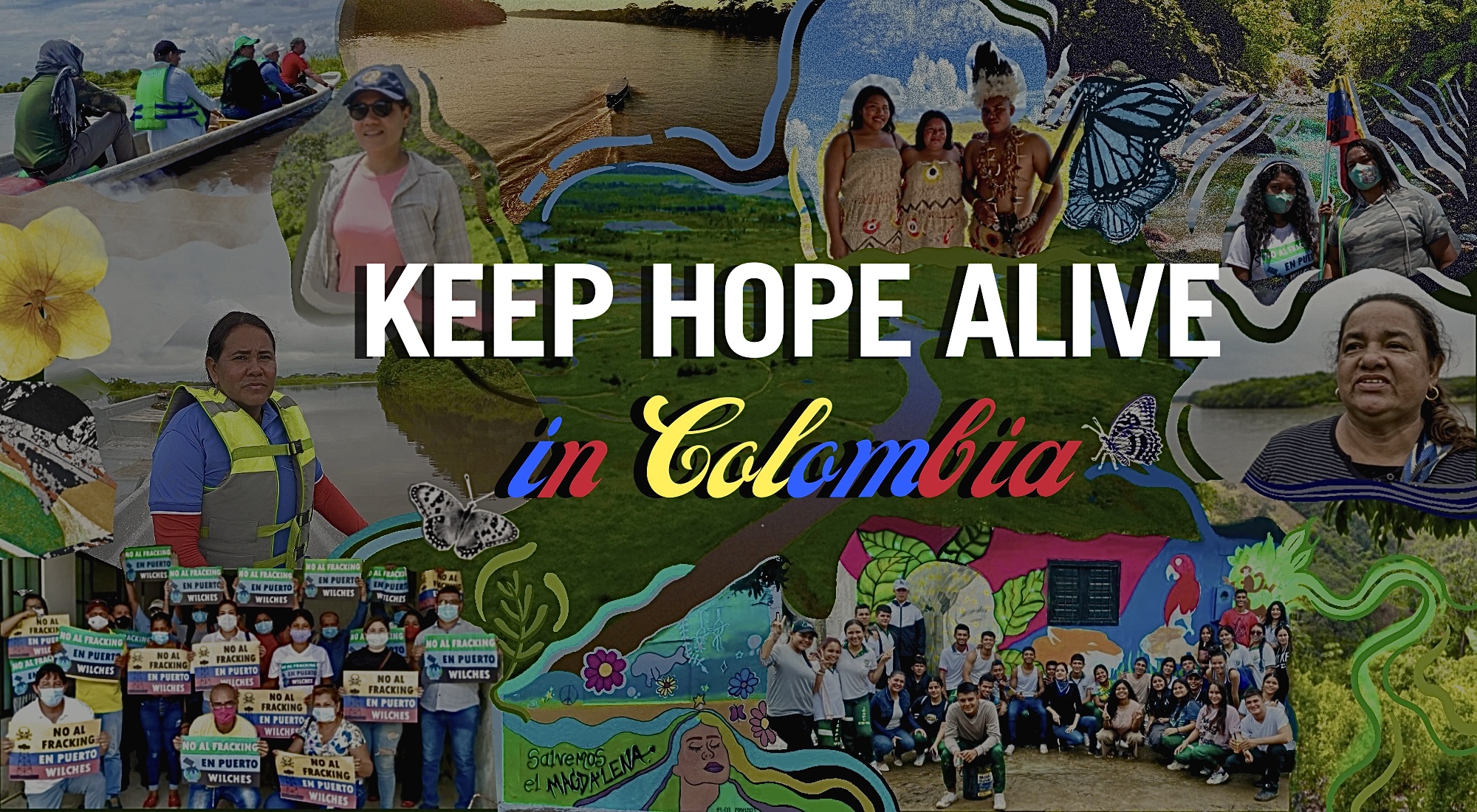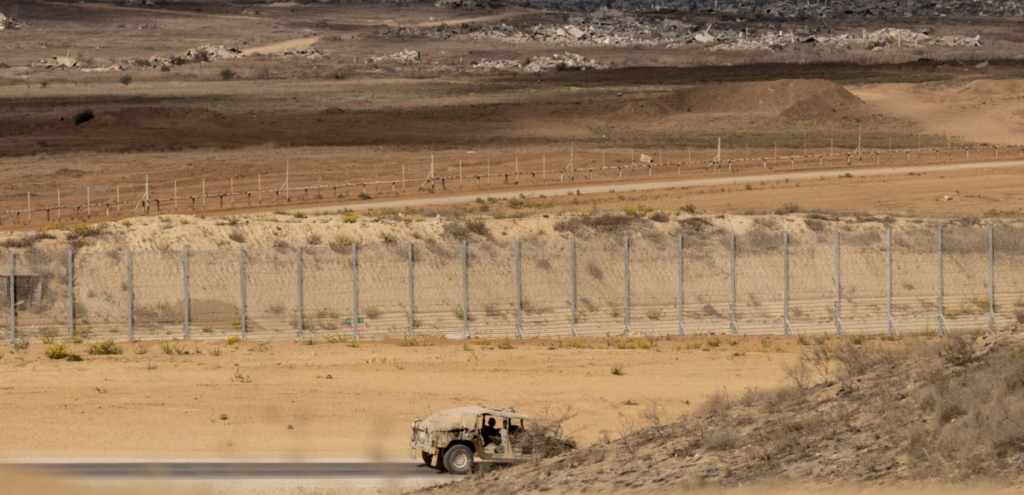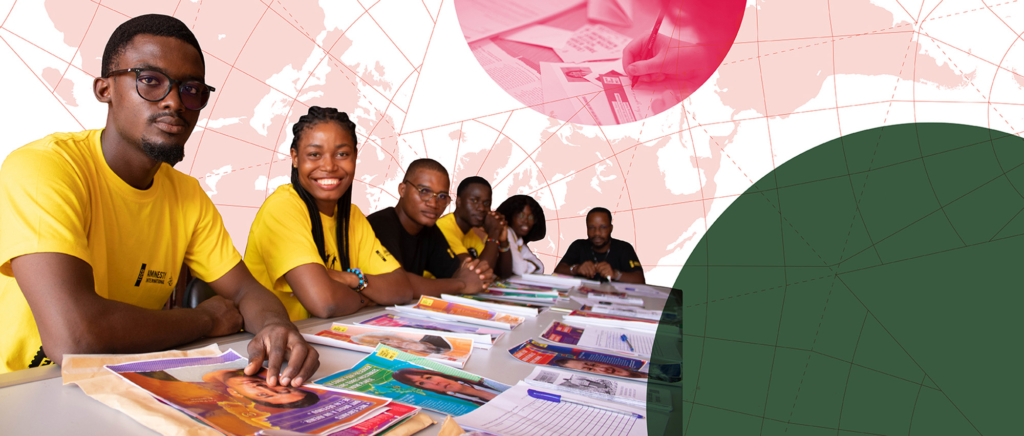It was 3 AM when armed men arrived at the homes of Maria, Luz Angela, and Richar. The three water defenders had just returned from a meeting with other leaders of Rios Vivos, a grassroots movement that has denounced social and environmental damage caused by a hydro-electric dam on the Cauca River. The armed men, who identified themselves as paramilitaries with the Gaitanista Self-Defense Force of Colombia (known by the acronym AGC), offered three options: “collaborate” by informing on Rios Vivos, leave the territory, or “face the consequences”.
It was no idle threat. Other Rios Vivos community leaders have been killed. Maria, Luz Angela and Richar gathered their families and left their homes in search of safety.
Sadly, forced displacement is all too common, amid a new wave of threats and attacks on land and water defenders in Colombia.
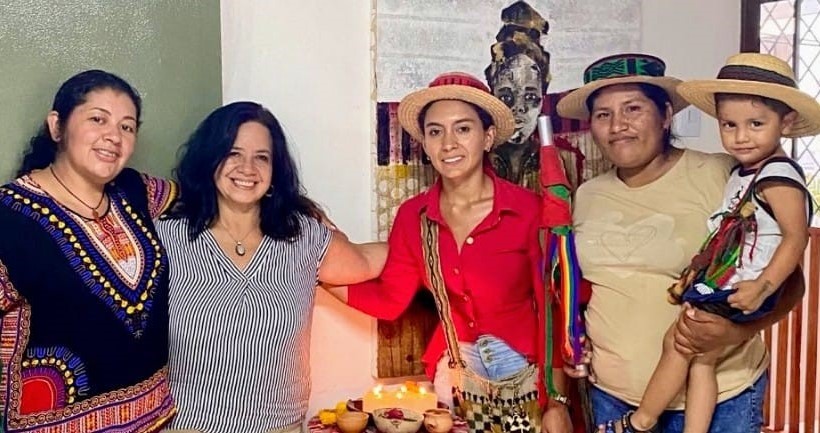
“An armed group threatened me that if I do not leave, they will kill me or my two-year-old son,” Deyanira Soscue told us at a recent meeting with Canada’s Ambassador for Women, Peace and Security. Dayanira is a Nasa Indigenous territory defender and governor of the Cerro Tijeras Indigenous Reserve. She and her family have been forced to go into hiding outside her territory.
An armed group threatened me that if I do not leave, they will kill me or my two-year-old son.
Deyanira Soscue, Governor of the Cerro Tijeras Indigenous Reserve
In Magdalena Medio, the situation is no different. The High Command of the Magdalena Medio Bloc of the AGC threatened a number of organizations that work to protect land, Indigenous territory and water. They include the Popular Women’s Organization (OFP), the Federation of Artisanal, Environmentalist and Tourist Fishers (FEDEPESAN) and the Regional Organization for the Defense of Human Rights (CREDHOS). All were declared to be a “military target” by the paramilitaries.
What that means was abundantly clear on February 13 when a grenade was thrown inside the home of a CREDHOS defender (we are not naming her because of security risks). Members of her family were injured.
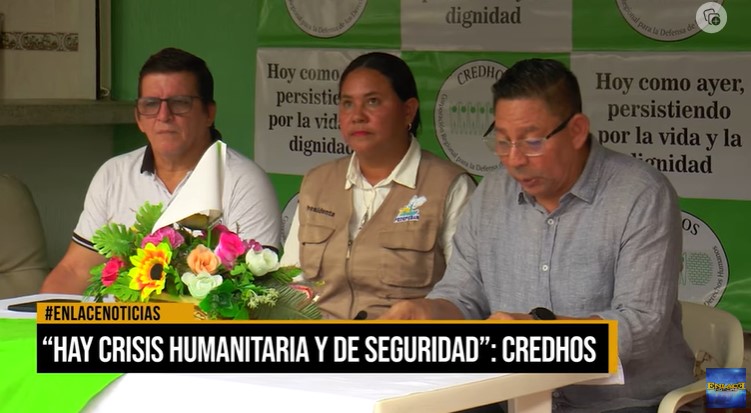
Not just isolated incidents
Colombia is the most dangerous country in the world to defend land, Indigenous territory, and the environment according to the 2023 report of Global Witness. Approximately every two days, a defender is assassinated. The danger is particularly acute for Indigenous, Afro-Colombian and campesino leaders defending their lands and water. Women defenders face additional risks of gender-based violence.
A historic opportunity for change
In mid-2022, Gustavo Petro won the second round of presidential elections in Colombia, accompanied on the ballot by Francia Márquez, his vice-presidential running mate. Their election was historic. Petro became the first President with an explicitly leftist agenda and the first former member of a rebel group to become President. Márquez, a renowned human rights defender and winner of a prestigious Goldman Environmental Prize, became the first Afro-descendant woman to become Vice President. Human rights defenders were named to key posts in the government. These precedents imply a radical shift in Colombia’s domestic politics.
The new government prioritized protection of human rights defenders in its first 100 days in office, launching an emergency plan. It strengthened the Human Rights Directorate of the Ministry of the Interior, which plays a key role in the protection of defenders and provided staff and budget to develop collective protection measures.
While a good first step, homicidal violence against human rights defenders increased. According to the Office of the United Nations High Commissioner for Human Rights, 2022 was the most violent year for defenders since 2012.
The Petro-Márquez government has publicly acknowledged the dire realities faced by defenders, challenges inherited from previous governments that were hostile towards human rights defenders. The current government has shown a political will to seek solutions. Amnesty International believes there is a unique window of opportunity now to work with defenders in Colombia to generate the changes needed to stop the killings.
Our work isn’t easy but thanks to … the international organizations that raise the profile of our work, we are no longer alone … The Colombian government has a historic opportunity to ensure that we can continue our work without fear …
Yuly Velásquez, president of FEDEPESAN
International solidarity is vitally important
Consider the words of FEDEPESAN’s president Yuly Velásquez, a courageous environmentalist who is among the land and water defenders who have been declared a military target by paramilitaries in Magdalena Medio.
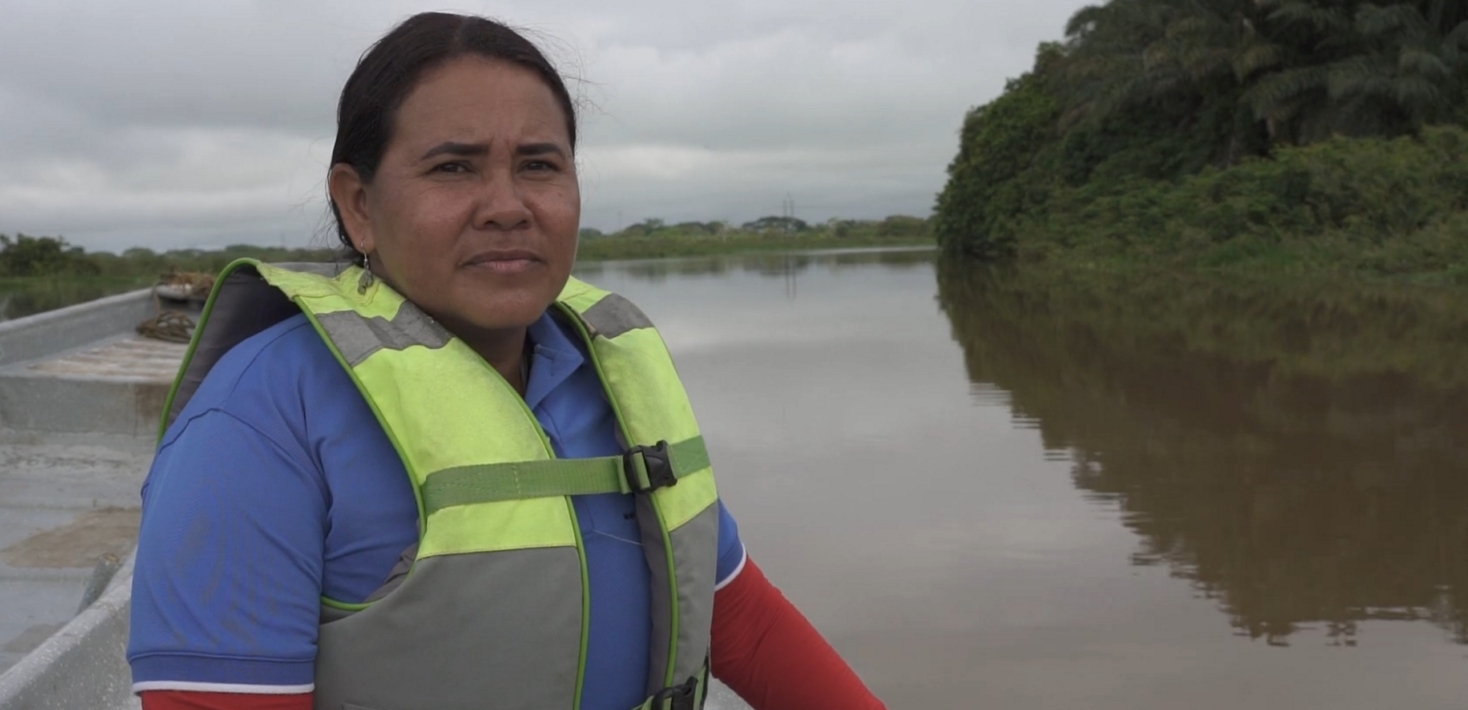
“Our work isn’t easy,” says Yuly. “But thanks to CREDHOS and the international organizations that accompany us and raise the profile of our work, we are no longer alone. We’ve achieved recognition as guardians of our bodies of water … We dream of protection for our rivers and wetlands so they can continue to provide food and a healthy environment for future generations. The Colombian government has a historic opportunity to ensure that we can continue our work without fear and to be at the forefront of change in the world’s most dangerous region for the defense of the environment. Governments must listen to environmental defenders and take account of their demands.”
Take Action
Learn More
Join our Activism Gathering on March 7, entitled Keep Hope Alive in Colombia. It’s an opportunity to learn more and to share ideas with other activists in order to make a difference. Register here to attend.
Watch this 5 minute video to hear what Colombian defenders want to tell us
Read this blog with the testimonies that threatened women human rights defenders shared with Canada’s Ambassador for Women, Peace and Security
E-action
This is the quickest way to show your concern. Sign our E-Action Keep Hope Alive in Colombia. Be a multiplier by sharing the action and inviting others to sign it.
Write a personal message
Make visible international concern and solidarity with threatened land and water defenders, following the recent threats. Find the instructions in this Urgent Action about the death threats and this second one about the grenade attack. Sign up to receive other Urgent Actions in support of Colombian Defenders. Write to UrgentAction@amnesty.ca and in the subject line, write “Sign Me Up For Colombia Urgent Actions”.












